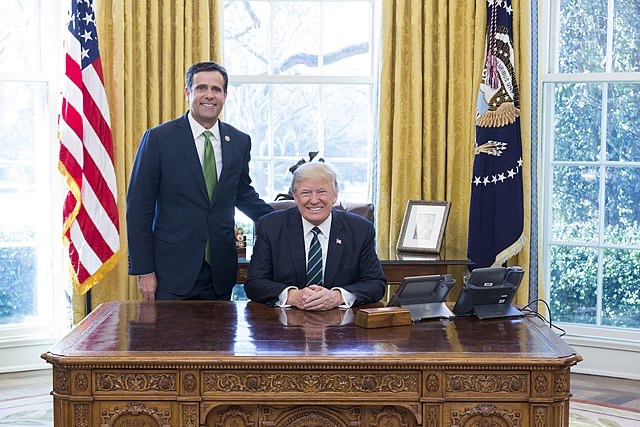In a dramatic showdown on Capitol Hill, CIA Director John Ratcliffe furiously defended Defense Secretary Pete Hegseth after a Congressman suggested he may have been drunk when ordering military strikes in Yemen. The outburst, which took place during a tense House Intelligence Committee hearing, has ignited a political firestorm over leaked messages, national security, and the ethics of high-ranking government officials.
The scandal isn’t just about one heated exchange — it’s a window into how informal communication methods are risking America’s global credibility and security.
The Congressional Showdown: What Happened?
Tensions boiled over when Representative Jimmy Gomez (D-CA) grilled CIA Director John Ratcliffe about a controversial Signal group chat that discussed plans for U.S. military action in Yemen. Gomez asked point-blank whether Hegseth had been under the influence of alcohol when he authorized the strikes — a question that Ratcliffe called “deeply offensive.”
“What are you insinuating? That the Secretary of Defense was drunk when protecting this country? That is outrageous!” Ratcliffe yelled, his voice echoing in the chamber.
The moment instantly became headline news, exposing the intensity of the investigation and the stakes involved.
The Allegation Against Pete Hegseth
At the heart of the uproar is the claim that Pete Hegseth, Trump-appointed Secretary of Defense, may have acted while impaired. While no concrete evidence has been presented publicly, the mere suggestion has fueled debate over Hegseth’s fitness for such a critical role.
According to sources close to the investigation, the accusations stem from messages in a Signal chat where national security decisions — including strike targets in Yemen — were allegedly discussed.
What Was in the Leaked Signal Messages?
The leaked messages revealed that top officials — including Hegseth, Ratcliffe, and Director of National Intelligence Tulsi Gabbard — were discussing sensitive military strategies in a private Signal group chat. Shockingly, the group mistakenly included Jeffrey Goldberg, editor-in-chief of The Atlantic.
This breach of security not only exposed U.S. strike plans to the media but also raised serious legal and ethical concerns. How could such high-stakes decisions be shared in a channel prone to human error?
Inside the Secret Group Chat
Signal, a popular encrypted messaging app, is often used by political figures for its privacy. But it’s not an official government platform, nor is it designed to handle classified information. The involvement of multiple senior officials — without oversight or formal record-keeping — has sparked bipartisan concern.
This wasn’t a rogue staffer with a burner phone. This was the highest level of national defense, conducted via chat.
National Security Risks and Legal Implications
The leaked chat has drawn the attention of legal scholars and former intelligence officials. Several lawmakers have called for investigations into whether the Signal exchange violated the Espionage Act or federal record-keeping laws.
With sensitive strike details casually discussed, and a journalist accidentally included, the national security implications are enormous. The idea that state secrets could be so loosely guarded has shaken confidence across Washington.
The Democrats’ Push for Accountability
In response, Democrats are calling for resignations and criminal inquiries. Senators Jack Reed and Roger Wicker have jointly requested an independent investigation. House Democrats have been especially vocal, with some suggesting impeachment-level consequences if wrongdoing is confirmed.
Tulsi Gabbard, who is also implicated, has admitted the Signal chat was a “mistake.” Whether that admission will be enough to satisfy lawmakers remains to be seen.
Ratcliffe’s Fiery Defense of Hegseth
Ratcliffe’s emotional reaction was clearly intended to protect a colleague — but it may also have raised more questions. His shouting, while a passionate defense, drew criticism for being overly defensive and dodging legitimate inquiry.
Far from diffusing the situation, his outburst has fueled speculation about what’s really being hidden.
Tulsi Gabbard’s Role in the Scandal
Director of National Intelligence Tulsi Gabbard is no stranger to controversy, and her role in the Signal thread puts her under scrutiny. As one of the top intelligence officials, her participation raises flags about leadership standards and communication discipline.
She has not faced formal calls for resignation — yet — but the investigation could change that.



